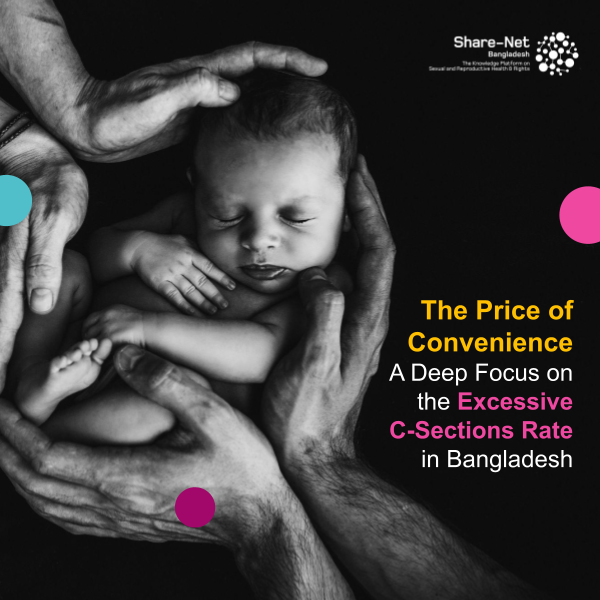The Price of Convenience: A Deep Focus on the Excessive C-Sections Rate in Bangladesh
The statistics paint a stark picture: Bangladesh, once boasting a modest 11 percent rate of Caesarean section (C-section) deliveries in 2011, now grapples with a staggering 50.7 percent, according to data from the Bangladesh Bureau of Statistics. Such an exponential rise in C-section births raises profound concerns, not only for the health of mothers and infants but also for the strain it places on the healthcare system.
The World Health Organization (WHO) recommends that C-section rates should ideally hover between 10 to 15 percent. However, Bangladesh’s soaring rate far exceeds this benchmark, ringing alarm bells across the healthcare landscape. The surge in C-sections isn’t merely a medical anomaly but a systemic failure, rooted in a complex web of factors.
Profit over Health: A Looming Crisis
One of the key drivers behind this concerning trend is the profit-driven nature of private healthcare facilities. Unregulated clinics and hospitals often prioritize financial gains over patient well-being, pushing unnecessary C-sections to boost their revenue streams. A report by Save the Children Bangladesh in 2018 revealed that medically unnecessary C-sections cost families a staggering Tk 48.3 crore in out-of-pocket expenses, highlighting the dire financial burden inflicted on lower- and middle-income households.
Syndicates and Misinformation: Fueling the Epidemic
In addition to profit motives, the proliferation of syndicates comprising doctors, hospital owners, and brokers further exacerbates the C-section epidemic. Misguided by these entities, expectant mothers are coerced into opting for C-sections, often against their best interests. Field-level health workers play a pivotal role in steering pregnant women towards unnecessary surgical interventions, perpetuating a cycle of misinformation and exploitation.
Health Risks: The Toll on Mothers and Infants
While C-sections can be life-saving in certain circumstances, their overuse poses grave risks to maternal and neonatal health. Immediate separation of the newborn from the mother deprives infants of crucial breastfeeding moments, undermining their health and bonding opportunities. Moreover, unnecessary C-sections heighten the risk of complications such as infection, excessive bleeding, and long-term reproductive issues for mothers, casting a shadow over their postnatal well-being.
A Call to Action: Strengthening Healthcare Systems
To address this pressing issue, concerted efforts must be made to bolster the country’s healthcare infrastructure and regulatory framework. Increased budgetary allocations towards healthcare, coupled with targeted investments in training midwives and enhancing maternal and neonatal care services, are imperative. Moreover, stringent regulations must be enforced to curb the rampant practice of unnecessary C-sections in private healthcare facilities, safeguarding the health and rights of expectant mothers.
Conclusion: Towards a Safer, Healthier Future
The alarming surge in C-section deliveries in Bangladesh demands urgent attention and decisive action. By prioritizing maternal health and well-being, and combating profit-driven motives that fuel unnecessary surgical interventions, we can pave the way towards a safer, healthier future for mothers and infants alike. Through collaborative efforts between policymakers, healthcare providers, and communities, we can steer away from the normalization of C-sections and uphold the principles of sexual and reproductive health and rights (SRHR) for all.
Source: The Daily Star


